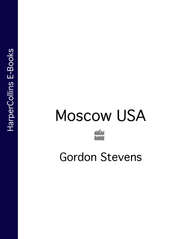По всем вопросам обращайтесь на: info@litportal.ru
(©) 2003-2024.
✖
Peace on Earth
Автор
Год написания книги
2018
Настройки чтения
Размер шрифта
Высота строк
Поля
He left home at seven thirty and began the ten minute drive to the barracks on the southern side of the city. It was his first day on duty since he had returned from Northern Ireland, it was also the first day for as long as he could remember that he would return home when he came off duty that night. He turned out of the road and began the drop into the city. Jane and the children were still on Christmas holidays, they had booked seats for the pantomime that evening. The traffic was light, he crossed the bridge over the river, turned right at the post office and began the drive along the edge of the barracks, the wire of the outer fence glistening in the cold of the sun. The man at the main gate looked into the car as he stopped. He knew what was going to happen.
‘It’s the bloody pin-up boy,’ the man joked. ‘Can I have your autograph?’
‘Sod off,’ Enderson told him.
The barrier lifted and he drove through.
The key number in the organisation of the Special Air Service, ever since its inception by David Stirling in the deserts of North Africa in 1941, is the number four. The regiment is divided into four active service squadrons, named Sabre squadrons. Each squadron is, in turn, divided into four troops; each troop in its turn, is divided into four patrols; each patrol is made up of four men. Each Sabre squadron is an entity in itself; there are, therefore, in principle at least, a minimum of four tours of duty in which the SAS may be engaged at any one time. Three of those are normally overseas, and in recent years the fourth has been British-based. It is the anti-terrorist duty. Other circumstances permitting, each squadron takes that duty in turn, with the in-built precaution of an over-lap period during which the outgoing squadron remains in place while the incoming squadron begins its training and familiarises itself with the places and locations in which it might be called upon to operate.
That morning Graham Enderson’s squadron went on anti-terrorist duty.
The briefing began at eleven, and the equipment was issued at twelve. While on the anti-terrorist duty, as well as the two-week period when the squadron which would take over from his were being trained up, Enderson would be on twenty-four-hour call. His equipment, the assault suit, the gas-mask with the built-in radio, the Heckler and Koch MP5K sub-machine gun, his small arms, the streamlights and stun grenades, as well as his body armour, would be kept in place in the special rooms in the centre of the barracks at Hereford. When the units were on red alert, he and his men would sit in the rooms fully geared; when he went home each evening, and when he came to work each day, he would carry with him a small hold-all with his personal items in it, as well as a Browning hand gun. He would also take a bleeper with him wherever he went, starting with the pantomime that night.
By five o’clock it was dark, Enderson left the barracks and drove home. The house was warm and bright, the Christmas decorations still in place, the tea on the kitchen table.
‘What’s that?’ his wife asked, looking at the hold-all.
‘Something from work,’ he replied vaguely. ‘Where are the kids?’
‘Getting ready.’
He went upstairs, locked the hold-all in the wardrobe at the foot of the bed, and changed.
The pantomime that evening was ‘The Gingerbread Man’, the theatre was crowded; Jane did not query why he took the bleeper with him, nor did she ask again about the hold-all, assuming she would become accustomed to it. She did, however, object when the bleeper was checked at six o’clock the next morning, waking her up, groaning as Enderson told her it was routine.
‘Every morning at six?’ she asked incredulously.
‘Every morning at six,’ he confirmed.
Walid Haddad sat in the darkness, the windows and doors closed, his shoulders hunched and his hands clasped tight in front of him.
Leish ya’Allah a hijack? Why in the name of Allah a hijack?
The thought crossed and re-crossed his mind. He moved his legs slightly, easing the pressure on them, and pushed himself even deeper into the chair. He had been like this, locked into himself, for the past four hours, ever since he had returned from the briefing with Abu Nabil.
The concentration was consuming him. He eased himself forward, searched for the small lamp on the floor at the side of the chair, switched it on, and made himself coffee.
There were hijacks, of course, often bloody, always spectacular, and there were groups who would carry them out. But they were the small groups, the fringe groups, who believed in violence for its own sake, not as a means to an end. He sat down again, leaving the light on, and placing the cup on the arm of the chair. Hijacks were no good if they made you enemies, if they lost you friends. Nabil had long seen that, used it as a criterion against which to judge every action on which he sent his men, quoted it when he had vetoed the many ideas that were placed in front of him.
So why a hijack? he thought again.
It was getting cold. He stood up, pulled on a sweater, and slumped back into the chair, pushing the reasons for the hijack to the back of his mind, turning his attention to the logistics and concentrating on the two basic requirements that were within his responsibility: how the hijack would take place, and where.
The two could not be separated, he was aware, separated them anyway, studying each in turn, beginning with the second.
Almost certainly Europe, Nabil had said. Definitely Europe, if a West German was to be in his team, Haddad thought, if the West German government was to be the target of their demands. All the big hijacks of the past had started in Europe. It was good for the publicity, the ease with which the television people could get their pictures out, the images without which the hijack would have no impact. Bad for everything else, especially the security. With the exception of Athens, most airports in Europe were tight, not water-tight, but tight. He wondered if he could turn the fact to his advantage, and began to reflect on what, in his mind, he already thought of as the Dubai factor, knowing that he would return to it, then switched his attention to the other requirement.
Getting his team on the plane would be simple, they would have no difficulty posing as ordinary passengers, using false identities and passports. The problem was how to get their weapons and explosives on with them. Not just pistols, not just inflight perfumes and spirits splashed round the cabin in the hope they would ignite. The weapons and explosives had to be good, the best. Not only that, they would have to be seen to be the best.
There was no sense in hoping he could pick up additional materials half way through, stop for refuelling in, say, Libya, and trust that Gadafy would supply him with what he needed. Gadafy aside, it was too obvious, with too many political as well as military complications. It had also been done before, it was one of the things they would expect, and the only way the hijack would succeed, the only way he would get through it, was if he always did what they did not expect.
Not always, the thought came into his mind, it was not correct that he should always do what they did not expect. Sometimes he would do what they expected. Or would appear to do what they expected. He thought again about what in his mind he referred to as the Dubai factor and began to analyse why he had always thought it was important, how he had always known that one day he would use it.
In December 1984 a group of Shi’ite Moslems had hijacked an airbus of Kuwaiti Airlines en route from Dubai to Karachi and diverted it to Teheran. The hijack had ended six days later when they were over-powered by the Ayatollahs security police dressed as doctors and mechanics. What had attracted his attention, however, was not the way it had ended, despite the fact that it had previously been assumed that Khomeini supported both the hijackers and their cause, nor even the period of waiting in the middle, but the day on which and the circumstances under which the hijackers had boarded the aircraft. It was this which had established itself in his mind as the Dubai factor.
He rose from the chair and made himself a fresh coffee, wondering if they had also seen it, wondering if they would see how he was using it. It was interesting, he was thinking, that he was not just considering those against whom he was being sent, but also those who would be sent against him. He knew they would see it, that it was their job to see it, and began to calculate how he could use that fact against them.
John Kenshaw-Taylor selected a log from the wrought-iron basket inside the inglenook and placed it on the fire. The lounge was warm; he loved the smell and sound of wood burning, the sparkle of lights from the chandelier in the centre of the ceiling. On the oak beam which spanned the massive fireplace stood a glass of his favourite malt. Christmas, he thought, had been good, very good, made even better, he could not help admitting to himself, by the rumours of despondency which had filtered through from the other ministries, worries at Central Office about the decline in popularity ratings, and concern at the Exchequer about the gradual but persistent fall in the value of sterling, the acrimonious sessions in his own previous department about his successor’s failure to find the means to a settlement of the oil dispute which was increasingly being seen as the major underlying cause of the weakness of the pound. In two days’ time the new Energy Minister would fly to Zurich for the latest round of oil negotiations. It would not, Kenshaw-Taylor felt, be a successful trip. As a member of Her Majesty’s government, he reflected, reaching for the malt, he could take no pleasure in such a failure by a fellow member of government, especially one who, like him, had been short-listed as a potential leader of the party within the next decade.
The door opened and his wife came into the room. He stood up, told her how lovely she looked, and poured her a sherry. ‘Thanks for a really lovely Christmas, darling,’ he said. ‘I’ve really enjoyed it.’ They stood looking at the fire. ‘Pity it has to end. Pity I have to be away for a few nights.’
The first guests arrived five minutes early, the last a mere ten minutes late. The people he and Samantha had invited were those whose company he enjoyed, a merchant banker, a barrister, a shooting partner, rather than those, like the chairman of the local Conservative Association, whom he felt compelled to entertain regularly in order to protect his constituency base. They were, however, not without influence, both inside and outside the party.
The dinner, he insisted, was simple and straightforward, though he did concede that it had been tastefully prepared and presented, joining his guests’ demands that cook should leave the kitchen to receive the accolades personally. Thinly-sliced raw salmon, marinated briefly in a mix of fresh lime juice, crushed coriander seed and olive oil from a recipe he had picked up in a little auberge he knew in the South of France, with a Riesling Clos Ste Hune 1976 vintage. Pheasant Souvaroff, the game shot by himself and hung for two days and no more (Kenshaw-Taylor did not stand on the custom of hanging a bird till the flesh was falling from its bones), with a purée of celeriac, a mélange of carrots and leeks, and almond potatoes, plus a 1978 vintage Château Rayas. And tartlet with kiwi fruit and raspberry sauce, accompanied by a Schloss Vollrads Trockenbeerenauslese by Graf Matushka-Greiffenclau, whom, he happened to mention, he had met at Claridge’s in the autumn. When they had finished he suggested they tried a Stilton he had bought for Christmas but which he judged had not come right in time, ignoring their protests when he fetched a 1960 Quinta do Noval from the cellar.
The party finished at one. They told cook she could do the washing up in the morning and went to bed.
‘You know, darling,’ his wife said as they went to sleep, ‘I have a feeling this is going to be your year.’
Two months after they arrived in Israel, Yakov Zubko and his family were given their new home. It wasn’t big, the social worker from the Jewish Agency told them when she called them to her office, and it wasn’t in the city, yet she believed them when they told her it didn’t matter, that at least it was home.
The following weekend Yakov Zubko took his family to see it. They rose at five, Yakov making breakfast and tidying the flat while Alexandra packed them sandwiches as she had done the day they began their journey out of Russia. The social worker had suggested she come with them but had not been surprised when they declined her offer. We, the family Zubko, managed to leave Russia, they told her and we, the family Zubko, can find our own way to our home.
They caught the bus before the sun was up, leaving the city and travelling east, the morning still cool, passing through Ramla and Jerusalem before turning south towards Hebron. They had been out of Tel Aviv before, had knelt at the Wailing Wall and stood in silence at Yad Vashem; but today was different. When she did not have to hold her daughter, Alexandra squeezed Yakov’s hand.
Вы ознакомились с фрагментом книги.
Приобретайте полный текст книги у нашего партнера:
Приобретайте полный текст книги у нашего партнера:









